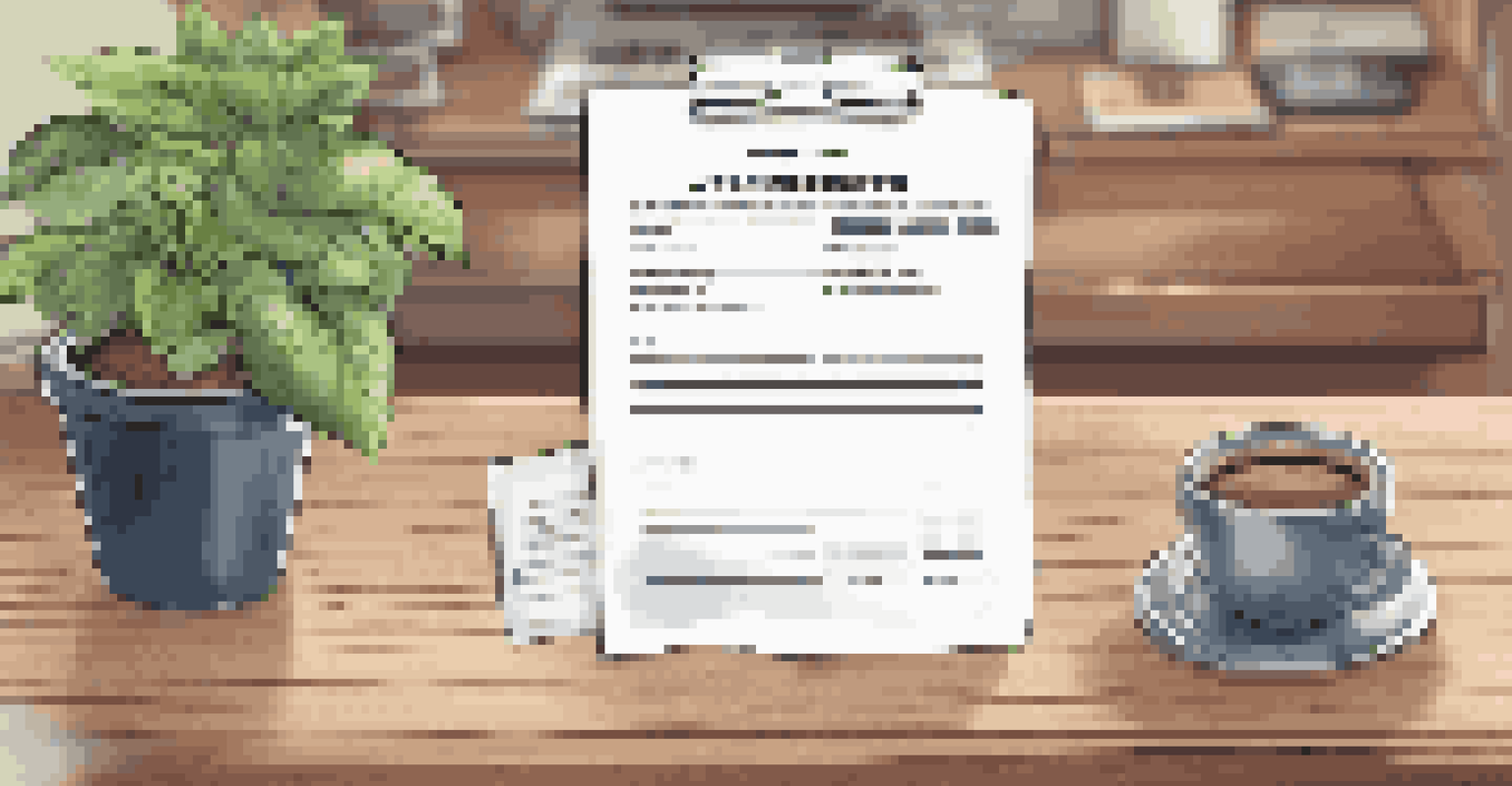Navigating the First Year as a New Landlord: Key Insights

Understanding Your Responsibilities as a Landlord
As a new landlord, it's crucial to grasp what your responsibilities entail. This includes maintaining the property, ensuring safety standards, and addressing tenant needs promptly. Think of it as being the captain of a ship; if you don’t steer it right, the journey can get bumpy.
The best way to predict the future is to create it.
Familiarize yourself with local housing laws and regulations. They dictate everything from security deposits to eviction processes. Ignoring these rules can lead to fines or legal trouble, so consider them your navigational charts.
Additionally, remember that your tenants are your customers. Providing a good experience can result in longer tenancies and fewer headaches. Just like in any service industry, happy customers are more likely to return.
Setting Competitive Rent Prices
Determining the right rent is a balancing act between profitability and attractiveness. Start by researching comparable properties in your area to gauge the market rate. Think of it as pricing a product; if you price it too high, you might scare potential renters away.

Take into account the unique features of your property. Does it have a great view or modern amenities? These can justify a higher rent. However, remember that overpriced units often sit vacant, which can hurt your bottom line.
Understand Landlord Responsibilities
Being a landlord means maintaining the property, ensuring safety, and addressing tenant needs promptly.
Lastly, be open to adjusting your price based on demand and tenant feedback. A flexible approach can help you find the sweet spot that attracts tenants while ensuring you’re still making a profit.
Marketing Your Rental Property Effectively
Effective marketing is key to attracting potential tenants. Start by creating eye-catching online listings with professional photos and detailed descriptions. Imagine your property as a product on a shelf; it needs to stand out to catch a buyer's eye.
A good landlord is not just a provider of shelter, but a partner in a community.
Utilize social media and rental platforms to reach a wider audience. Posting on local community pages can also generate interest. The more people see your property, the higher your chances of finding the right tenant.
Don’t underestimate word-of-mouth referrals. Let your friends, family, and colleagues know you have a rental available. Personal recommendations can often lead to trustworthy tenants who come with a built-in level of credibility.
Screening Tenants: Finding the Right Fit
Tenant screening is one of the most critical steps in the rental process. Conduct background checks, verify income, and check references to ensure prospective tenants have a good rental history. Think of it as a hiring process—you're selecting someone to take care of your property.
Be clear about your screening criteria upfront to avoid misunderstandings. This transparency helps set expectations and paves the way for a smoother interaction. Just like a job interview, it’s all about finding a mutual fit.
Set Competitive Rent Prices
Finding the right rent involves balancing market rates with your property's unique features.
Remember that the goal is to find reliable tenants who will pay rent on time and treat your property well. A thorough vetting process now can save you a lot of hassle down the line.
Preparing for and Managing Tenant Move-Ins
Once you’ve selected a tenant, preparing for their move-in is essential. Create a detailed move-in checklist that covers everything from cleaning the space to ensuring all utilities are connected. Think of it as setting the stage for a new show; a smooth opening night makes for a great performance.
Schedule a walk-through with the tenant to address any concerns and document the property's condition. This not only protects you but also builds trust with your tenant. A good first impression can set the tone for your landlord-tenant relationship.
Finally, make sure to provide essential information, such as how to report maintenance issues or pay rent. Clear communication fosters a positive environment and helps prevent misunderstandings.
Handling Maintenance Requests Responsively
Maintenance issues are inevitable, so being responsive is vital. Create a system for tenants to report problems easily, whether through a phone call, email, or an online portal. Think of it as keeping a customer service line open; prompt responses build trust.
Prioritize urgent issues, like plumbing leaks or heating failures, to ensure tenant safety and comfort. Addressing these concerns quickly can prevent bigger problems later on. A stitch in time saves nine, as they say.
Build Positive Tenant Relationships
Regular communication and small gestures can lead to long-term success and tenant satisfaction.
Also, schedule regular maintenance checks to keep your property in good condition. This proactive approach can help you spot potential issues before they escalate, saving you time and money in the long run.
Navigating Tenant Relationships for Long-Term Success
Building a positive relationship with your tenants can lead to long-term success. Regular communication is key; check in occasionally to see how they are doing and if they need anything. Just like in any relationship, a little effort goes a long way.
Consider hosting tenant appreciation events or providing small gestures, like welcome baskets. These acts can foster goodwill and encourage tenants to treat your property with care. Happy tenants are often more likely to renew their leases.

Lastly, be approachable and responsive to their needs. A landlord who listens and addresses concerns can create a harmonious living environment, ultimately benefiting both parties.
Planning for the Future: Growing Your Rental Portfolio
As you gain experience, consider expanding your rental portfolio. Investing in additional properties can diversify your income, but it’s essential to do your homework first. Just like planting a garden, you want to ensure conditions are right for growth.
Research potential locations and property types that align with market demand. This strategy can help you make informed decisions that will pay off over time. Remember, it’s not just about quantity; quality matters too.
Lastly, stay updated on market trends and continue learning about property management. The more knowledge you have, the better equipped you’ll be to navigate challenges and seize opportunities in the rental market.